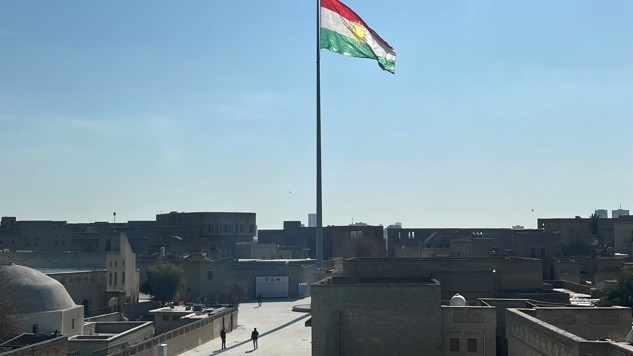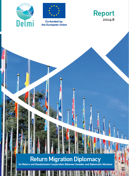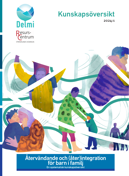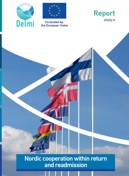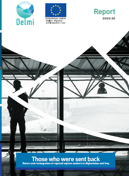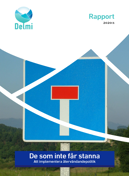This policy brief examines how the Nordic countries—Sweden, Denmark, Norway and Finland—collaborated to establish the Nordic Cooperation on Return and Reintegration in Iraq (NORAQ) platform, and more particularly the establishment of Migration Resource Centres (MRCs) in the Kurdistan Region of Iraq (KR-I), aiming to improve coordination and enhance reintegration outcomes. Drawing on lessons learned from NORAQ, the policy brief highlights both the opportunities and challenges of joint reintegration initiatives and explores the potential for replicating this model in other migration-relevant contexts.
Some overall conclusions and recommendations
- The NORAQ platform has shown that it is possible to coordinate different funding mechanisms—including development aid and migration-specific funds such as AMIF—within a common structure. Future joint initiatives should build on this model by establishing shared management frameworks that allow countries to contribute at varying levels while maintaining alignment in objectives, implementation standards and communication with partner countries.
- Local stakeholders in the KR-I have emphasized the importance of aligning cash assistance with the local cost of living, as regional economic disparities can significantly affect the reintegration opportunities available to returnees. In some areas, the cost of basic needs are substantially higher, making a standardized approach to financial support inadequate. Tailoring cash assistance to reflect these local realities is therefore crucial for ensuring meaningful and equitable support.
- The example of the NORAQ platform shows that, in complex environments, joint reintegration initiatives benefit from being relatively small in scale—particularly in terms of the number of participating host country actors. A more limited setup facilitates coordination both among the participating countries and with local stakeholders.
- Reintegration databases and referell systems should adopt an inclusive approach by integrating a broad range of stakeholders beyond government entities, international organisations and civil society. They should include local and international NGOs, private sector actors and community-based initiatives. Broadening participation helps create a more comprehensive service database and enables the provision of tailored, context-specific support to returnees.
- Experiences from NORAQ underscore the value of involving local institutions in the design and delivery of reintegration support. Local actors bring essential contextual knowledge and can enhance the relevance, responsiveness and sustainability of programming.
- Early and informed reintegration planning significantly increases the chances of sustainable outcomes, especially for individuals returning after long periods abroad. Engaging returnees as active participants in shaping their reintegration pathways is essential. In host countries, assigning return caseworkers to specific countries or regions of origin can foster expertise, enabling better pre-departure support and closer collaboration with local reintegration stakeholders.
About the authors
The authors of the policy brief are Anna Hammarstedt (PhD in International Relations), Iris Luthman (Master’s degree in Political Science), and Jenny Bergsten (Master’s degree in Human Rights). Anna, Iris and Jenny are all Research coordinators at Delmi.

This Policy Brief was published 10th of june 2025
Photo by: Jenny Bergsten
